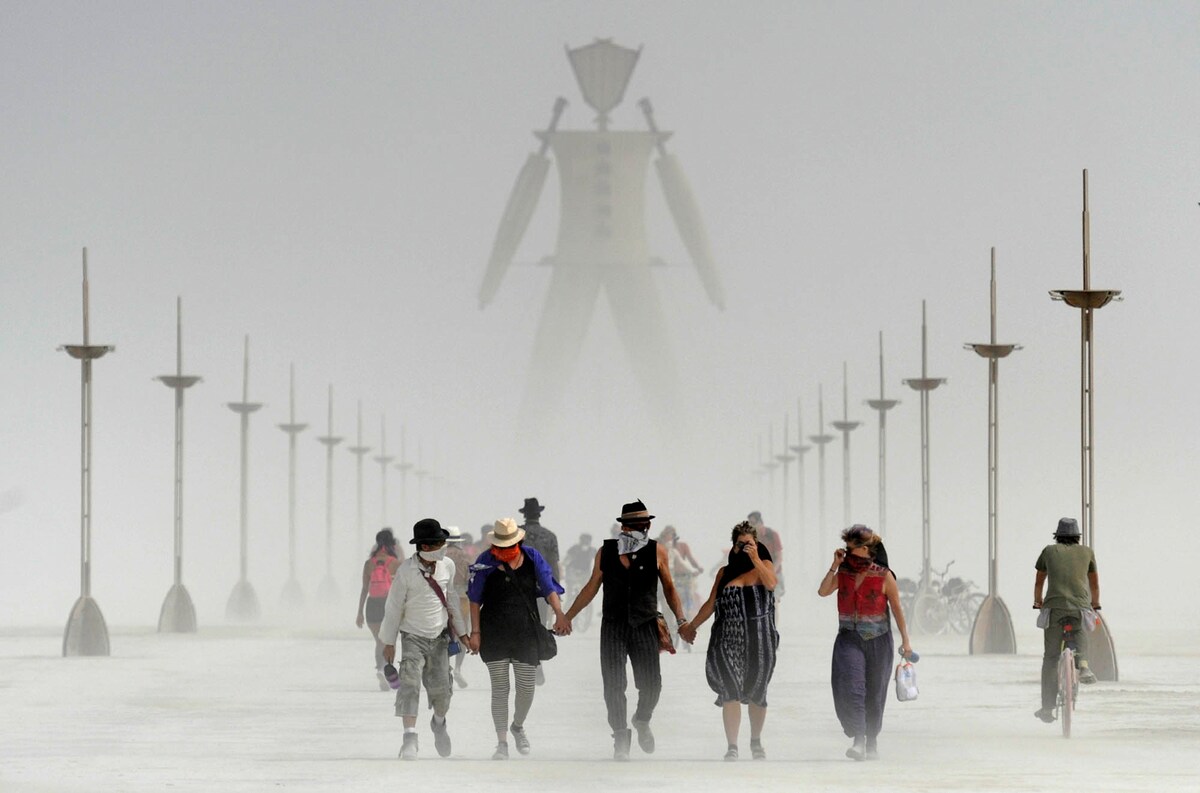Burning Man touts sustainability. Now it’s suing to block clean energy.
from WaPo
The organizers of the week-long festival worry a geothermal energy project could damage Nevada desert’s hot springs
By Dino Grandoni | January 13, 2023
Burning Man attendees trek to Nevada’s Black Rock Desert every year with a “leave no trace” ethos, erecting and then dissembling a temporary city for the raucous week-long art and music festival. Organizers even aim to make the bacchanal “carbon negative.”
But now the people behind Burning Man are suing President Biden’s administration to stop a geothermal project that may one day produce carbon-free energy.
The Burning Man Project, a San Francisco-based nonprofit that holds the festival every year, filed a lawsuit Monday against the federal government in the U.S. District Court for the District of Nevada, arguing regulators at the Bureau of Land Management failed to properly take into account the environmental impact of the geothermal exploration project when they approved it.
The plaintiffs fear that building roads, power lines and eventually a geothermal plant on lands around Gerlach, Nev., a gateway town for the annual event, could degrade hot springs near the site of the late-summer festival.
“These hot springs are unique environmental resources that are relied upon by the local community for tourism, and as a fundamental water source in an area that otherwise does not have water abundance,” the plaintiffs, which include a pair of environmental groups, a Gerlach resident and a landowner, said in their complaint.
Brian Hires, a spokesman for the Bureau of Land Management, said the agency had no comment on the pending litigation.
The rise of Burning Man
The project to search for potential sites for a geothermal power plant is part of the Biden administration’s push to run the U.S. power grid entirely on clean energy by 2035.
But the federal government’s efforts to expand renewable energy production on federal lands has sometimes generated opposition from locals concerned about changes to the landscape.
Last year, for instance, construction on another Nevada geothermal project was halted after federal wildlife managers declared the rare Dixie Valley toad, found only in springs near the power plant’s footprint, as an endangered species.
In October, the land management bureau determined the construction of 19 geothermal wells and about three miles of roads near Gerlach would have no significant environmental impact. Ormat, the company that plans to drill and explore the geothermal resources, says the case has “no merit.”
Paul Thomsen, vice president of business development at the Reno-based renewable energy firm, noted that the carbon-free energy generated by a new geothermal plant near the festival’s site would “offset some of the copious amounts of fossil fuels the Burning Man Project annually emits in the Black Rock Desert.”
But Andy Moore, a Gerlach resident who joined the lawsuit, said the case is about more than just the festival. It’s about preserving a region he loves.
“No one I know is against green power. What we are against is a company coming in, disregarding our public input [and] ignoring our questions,” he said in a statement provided through the Burning Man Project.
“There is no gain for this town, only loss from this project at our expense and way of life.”
Once an underground carnival for free-spirited bohemians, Burning Man has grown into a multiday megaevent that beckons Hollywood celebrities, Silicon Valley executives and tens of thousands of other revelers from around the world to let loose in the Nevada desert.
In Nevada, a tribe and a toad halt a renewable power plant
But even many attendees acknowledge the greenhouse gas emissions and other negative environmental impacts of flying and RVing into a remote landscape.
Among the event’s “10 Principles” are civic responsibility and leaving no trace once the party is over. But the BLM recently capped attendance at 80,000, in part because of the amount of trash from eventgoers.



